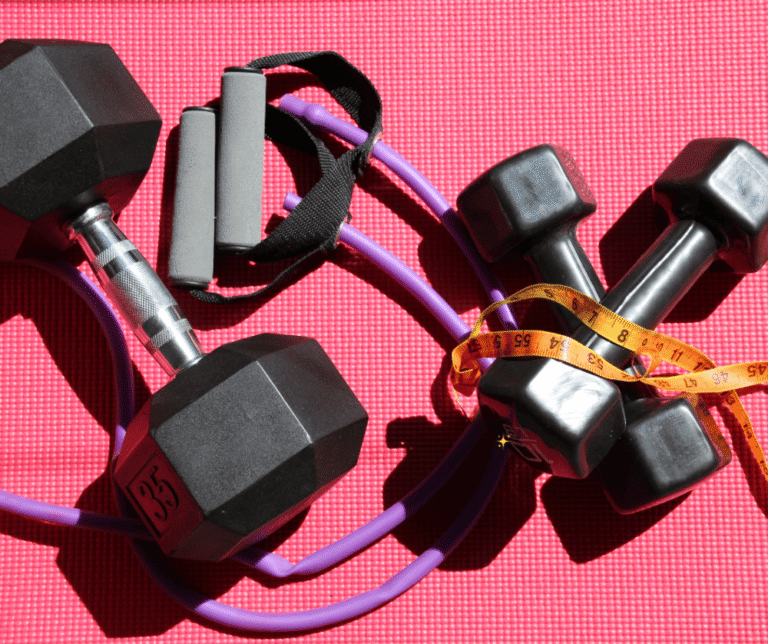Exercise is often referred to as the “magic pill” for maintaining overall health and well-being, and for good reason. Whether you’re a seasoned athlete or someone just starting to move more, the benefits of physical activity are undeniable. In this post, we’ll explore why exercise is essential, how it affects the body and mind, and offer tips for making it a consistent part of your daily life.
The Physical Benefits of Exercise
1. Improves Cardiovascular Health
Regular physical activity strengthens the heart, improving blood circulation and lowering the risk of heart disease. Cardiovascular exercise, such as walking, running, swimming, or cycling, helps lower blood pressure and cholesterol levels, which are major risk factors for heart disease.
2. Builds and Maintains Muscle Mass
Exercise, especially strength training, helps to increase muscle mass and bone density. This is vital as we age since muscle mass naturally decreases over time. Strong muscles and bones reduce the risk of injuries and improve balance and posture.
3. Boosts Metabolism and Weight Management
Physicalactivity is one of the best ways to regulate your metabolism. Regular exercise helps the body burn calories more efficiently, making it easier to maintain a healthy weight. It also helps manage body fat percentage, improving body composition in the process.
4. Improves Flexibility and Joint Health
Exercises such as yoga and stretching promote flexibility and mobility. Maintaining flexibility as we age is crucial for maintaining the range of motion in the joints and preventing stiffness and injury.
Mental and Emotional Benefits
1. Boosts Mood and Reduces Stress
Exercise has a powerful effect on mental health. Physical activity triggers the release of endorphins, which are often referred to as “feel-good” hormones. These endorphins promote a sense of happiness and well-being, reducing feelings of stress, anxiety, and depression.
2. Enhances Cognitive Function
Exercise improves blood flow to the brain, which can enhance cognitive function, memory, and concentration. Studies have shown that regular physical activity may reduce the risk of developing cognitive decline and conditions like Alzheimer’s disease.
3. Improves Sleep Quality
Physical activity also contributes to better sleep. It helps regulate sleep patterns, making it easier to fall asleep and stay asleep. Just be mindful not to exercise too close to bedtime, as it could have the opposite effect by increasing energy levels.
How to Make Exercise Part of Your Routine
If you’re new to exercise, it can feel daunting to figure out where to start. The good news is that you don’t have to take on a grueling workout plan to experience the benefits. Here are a few tips to help you integrate more movement into your daily life:
-
Start Small: If you’re not used to exercising, start with something simple like a 10-minute walk. Gradually increase the duration and intensity as you feel more comfortable.
-
Find Something You Enjoy: Exercise doesn’t have to be a chore. Find an activity you love, whether it’s dancing, hiking, or playing sports. You’re more likely to stick with something that brings you joy.
-
Make It Social: Exercising with a friend or family member can make it more fun and provide added motivation. Join a fitness class, participate in group activities, or start a walking group to keep yourself accountable.
-
Set Realistic Goals: Set achievable goals, such as walking 3 days a week or completing a 30-minute workout every other day. Small milestones can help keep you motivated and provide a sense of accomplishment.
-
Consistency is Key: The most important part of building an exercise routine is consistency. It’s better to commit to a moderate level of activity every day than to try and fit in one long workout each week.
Overcoming Barriers to Exercise
While the benefits of exercise are clear, many people struggle to maintain a consistent routine. Here are some common barriers and ways to overcome them:
-
Time: Busy schedules can make it challenging to find time to exercise. However, even short bursts of activity, like taking the stairs or going for a brisk 10-minute walk, can be beneficial.
-
Motivation: It’s easy to lose motivation, especially in the beginning. Try setting small, attainable goals and track your progress. This will help keep you motivated over time.
-
Physical Limitations: If you have an injury or chronic condition, it’s essential to consult a healthcare provider before starting any exercise program. They can help you choose activities that are safe and suitable for your condition.
Final Thoughts
Exercise is more than just a way to stay in shape — it’s a powerful tool for improving both physical and mental health. From enhancing cardiovascular function and building strength to reducing stress and boosting mood, the benefits are vast and far-reaching. By making movement a part of your daily routine, you’re not just investing in a healthier body, but a healthier mind as well. So, get moving — your future self will thank you.
#ExerciseMatters
#MoveYourBody
#FitnessJourney
#HealthAndWellness
#ActiveLifestyle
#StayActive

